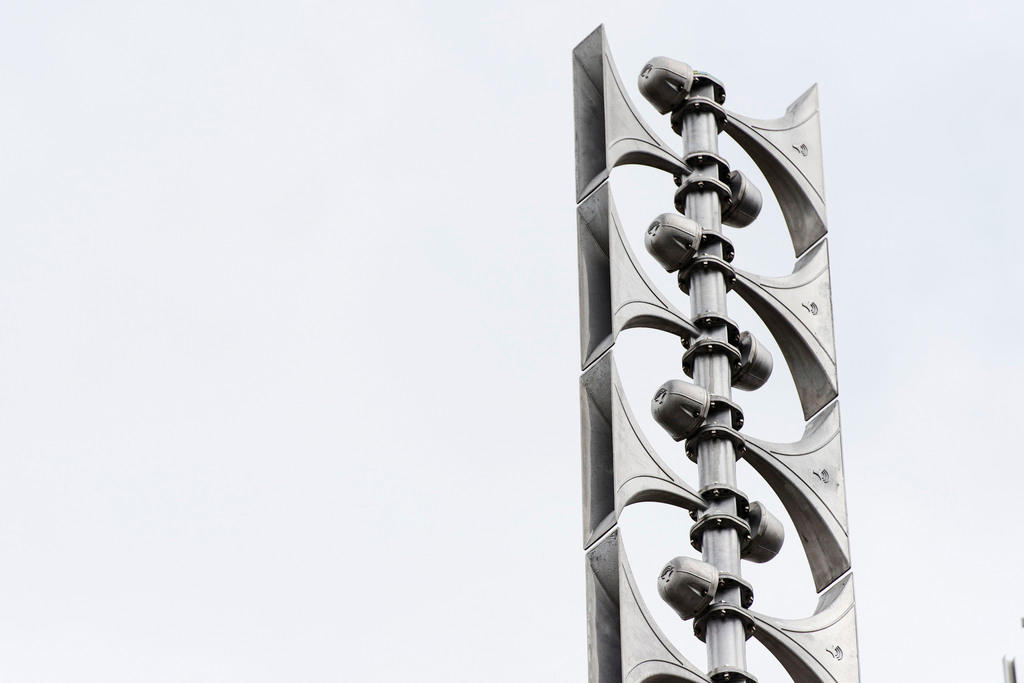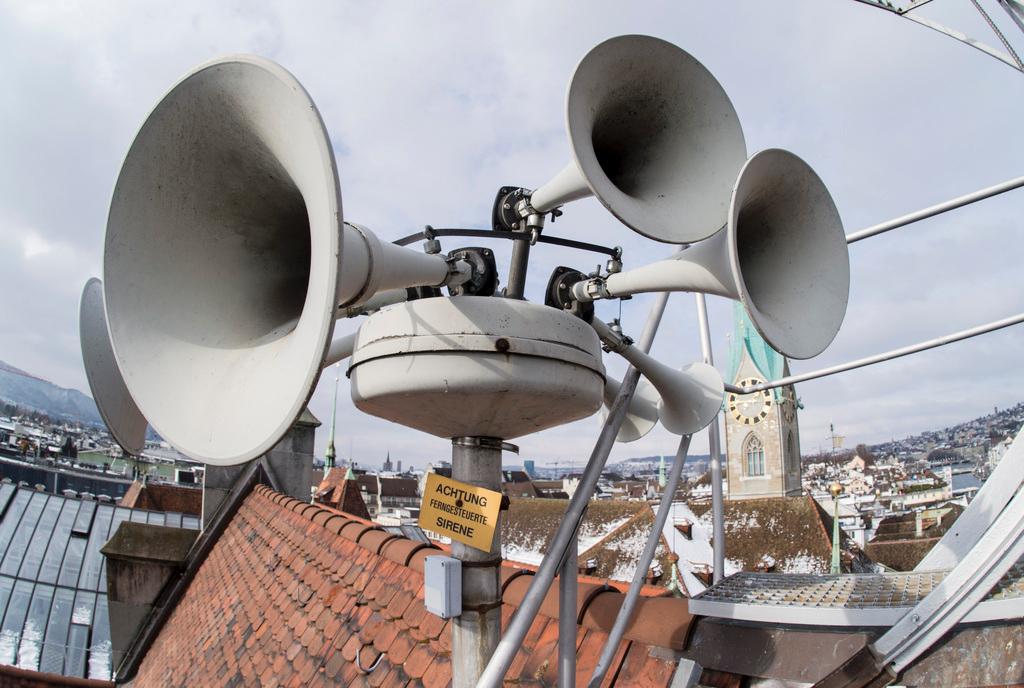
Emergency water alarm sirens fail in annual test run

The annual water alarm siren test, meant to signal an accident in areas lying just below dams, was unsuccessful in most Swiss cantons. The general emergency siren test, however, went off smoothly across the whole country.
On the first Wednesday of every February, Switzerland reverberates to the sound of close to 8,000 sirens, as the country carries out its annual test of the devices. Introduced during wartime, they are now used to alert the population to impending catastrophes or water dangers such as flooding.

More
General siren sound
At 13:30 sirens across the country sounded the general alarm meant to alert the population to emergencies such as natural disasters or chemical hazards. This test passed off smoothly on Wednesday with 98% of the sirens functioning as they should.
However, a second water alarm, scheduled for 14:15 failed or was delayed in the majority of cantons. There are around 700 of these water alarm sirens and are meant to signal an accident in areas lying just below dams. They emit a different tone compared to the general sirens.
On Thursday, the Federal Office for Civil Protection (FOCP) said the failures were due to a technical malfunction that occurred around 13:45 in the central siren remote control system.
“The FOCP is do everything possible to ensure that the external operator of the system can identify the exact cause. Depending on the results of the ongoing analyses, the necessary measures will be taken in agreement with the cantonal partners to ensure that the entire alarm system functions flawlessly,” said the office in a statement.
It is not yet known whether fresh water alarm tests will be required in some areas.

More
Sirens get a boost from social media

In compliance with the JTI standards
More: SWI swissinfo.ch certified by the Journalism Trust Initiative



























You can find an overview of ongoing debates with our journalists here . Please join us!
If you want to start a conversation about a topic raised in this article or want to report factual errors, email us at english@swissinfo.ch.